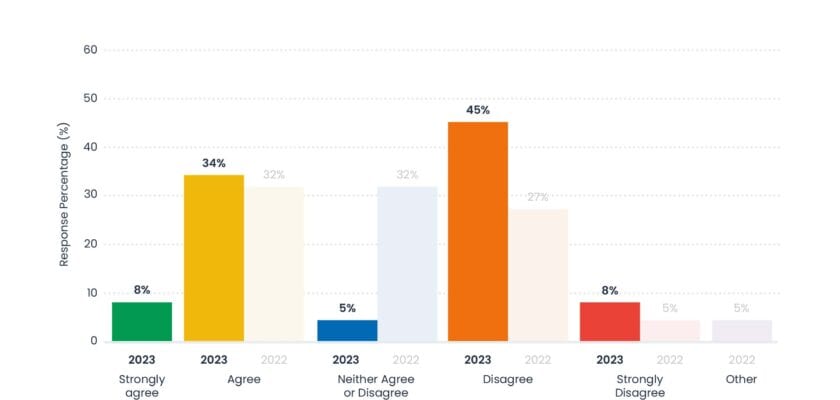Welcome to the final instalment of our review of IntoZetta’s ‘Data in Housing Survey 2023’. If you missed the earlier articles, please see the last three editions of Housing Technology (available online).
In part three, we saw respondents identify that, while they had a good idea of how data was being created, used and stored, they had little in the way of a reliable single source. There was also an awareness that most organisations store too much data, often in unsuitable places such as within documents on shared drives.
While this is not unique to housing, it’s still an area of major concern. Organisations need to trust their data to enable high-quality decisions to be made. Equally, they should store only the data they need to stay on the right side of GDPR and other legislation.
Transitioning to an architecture that supports these objectives isn’t easy but the benefits far outweigh the costs, if approached in a pragmatic and agile way.
So, on to the final chapter. We look in this section at broader data governance; how do we respond to sub-standard data; and do we understand its effect on customers and ourselves?
My organisation quickly identifies and fixes data errors
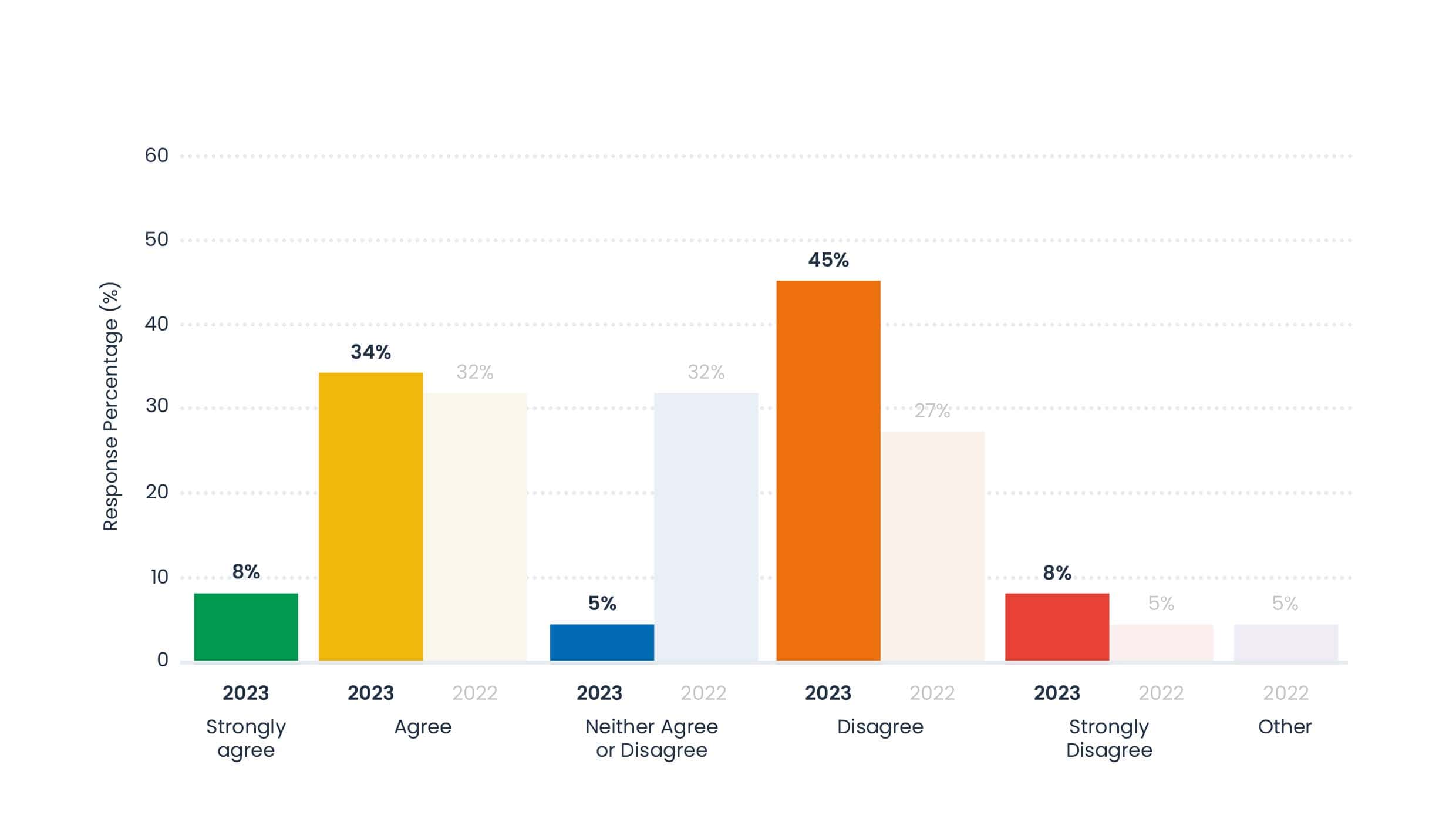
As we saw in the previous article, what this year-on-year change from a neutral to a negative response suggests is an increase in awareness of what ‘good’ looks like with respect to data across the housing sector.
Sadly, now people are more aware, that awareness has identified that a majority don’t manage data issues in an effective way, leaving those housing providers exposed to risk.
Ultimately, data management is within the sphere of risk management; if critical data is incomplete, wrong or missing altogether, we place ourselves at greater risk.
In my organisation, key data assets have owners who understand their data management responsibilities
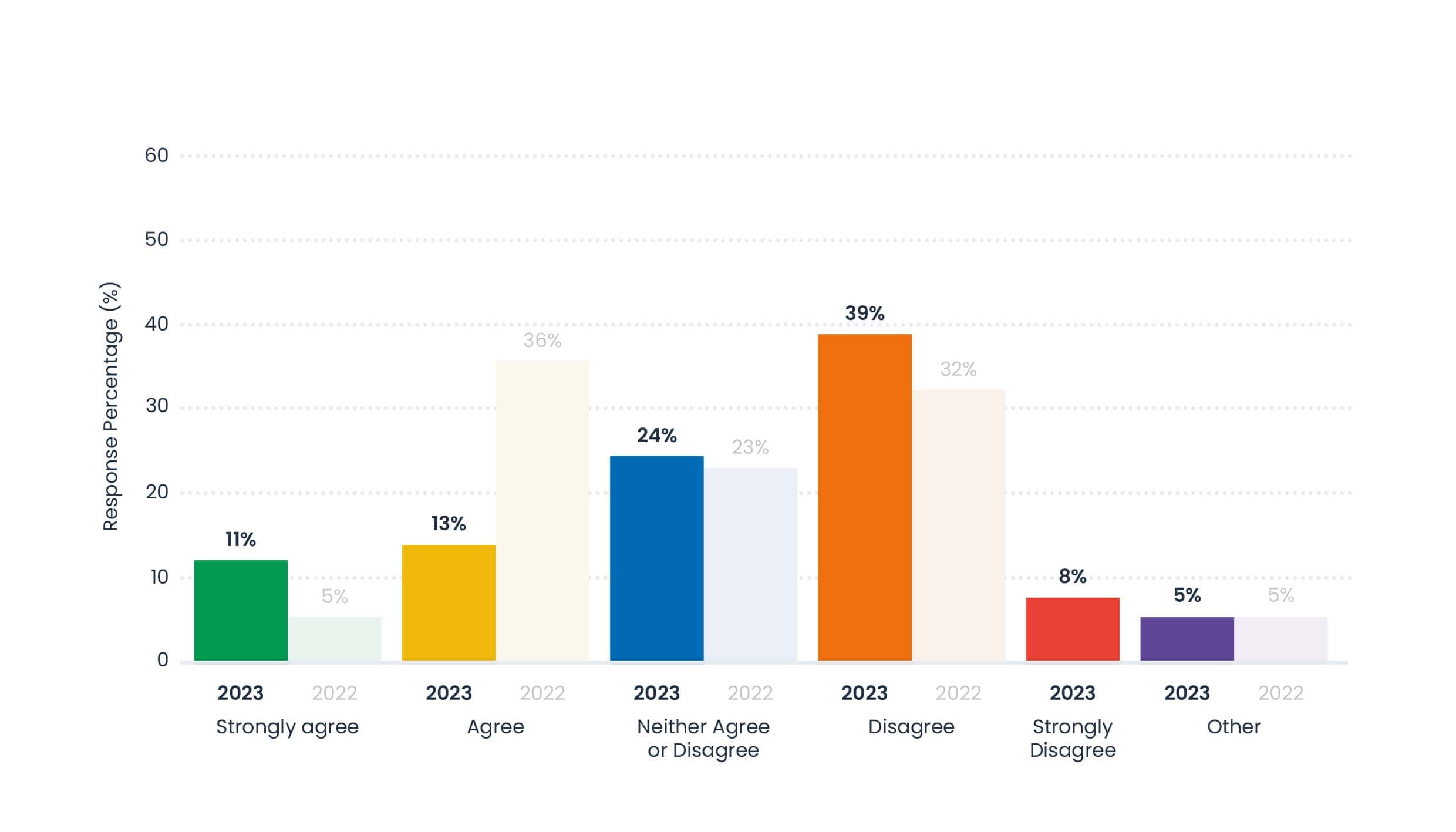
Here the story is worse. While six per cent have really embedded the roles and responsibilities of data governance into their organisations, many others feel that they’ve gone backwards.
Governance is a human activity. Although great technology will facilitate it, it relies on humans taking actions. Without clearly articulating and supporting the embedding of roles and responsibilities, governance will fail.
Leaders need to think about the priority they are giving to this kind of activity and if they are making space and time for conversations in this area.
My organisation manages its data compliance and regulatory obligations effectively
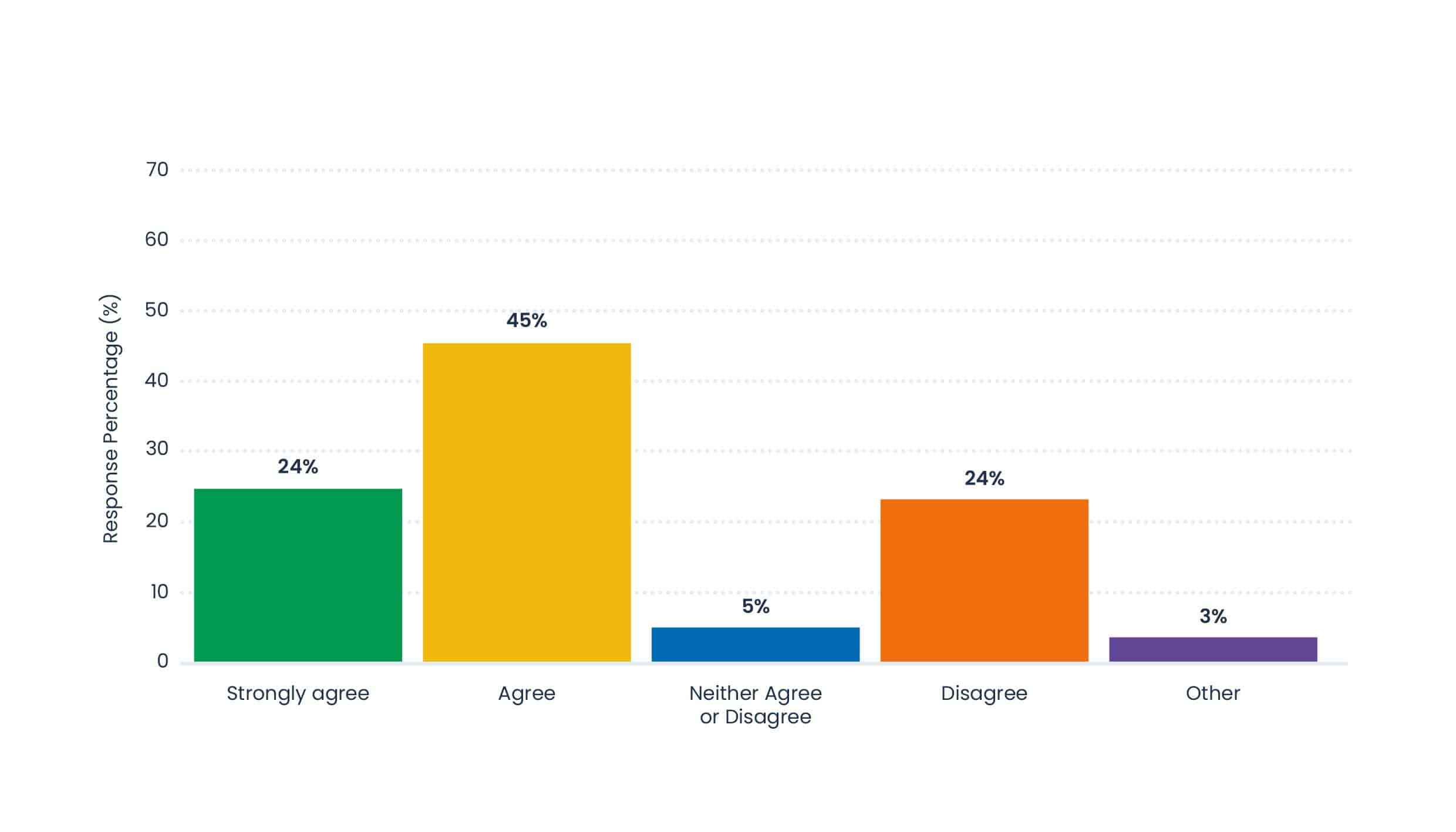
A new question for 2023, and the news is mostly positive. The good thing about regulatory compliance is the RoI doesn’t need much work; either we do it or we don’t do business. It doesn’t get much clearer than that, but that doesn’t mean we can’t review and improve the way we comply.
The organisations IntoZetta works with are using data governance to reduce their burden of compliance reporting. By continually monitoring and improving the data that flows into these submissions, we can avoid those last-minute panics to manipulate data in spreadsheets before it goes to the regulator, and move towards a more ‘push button’ approach.
My organisation understands how data affects the tenants’ experience
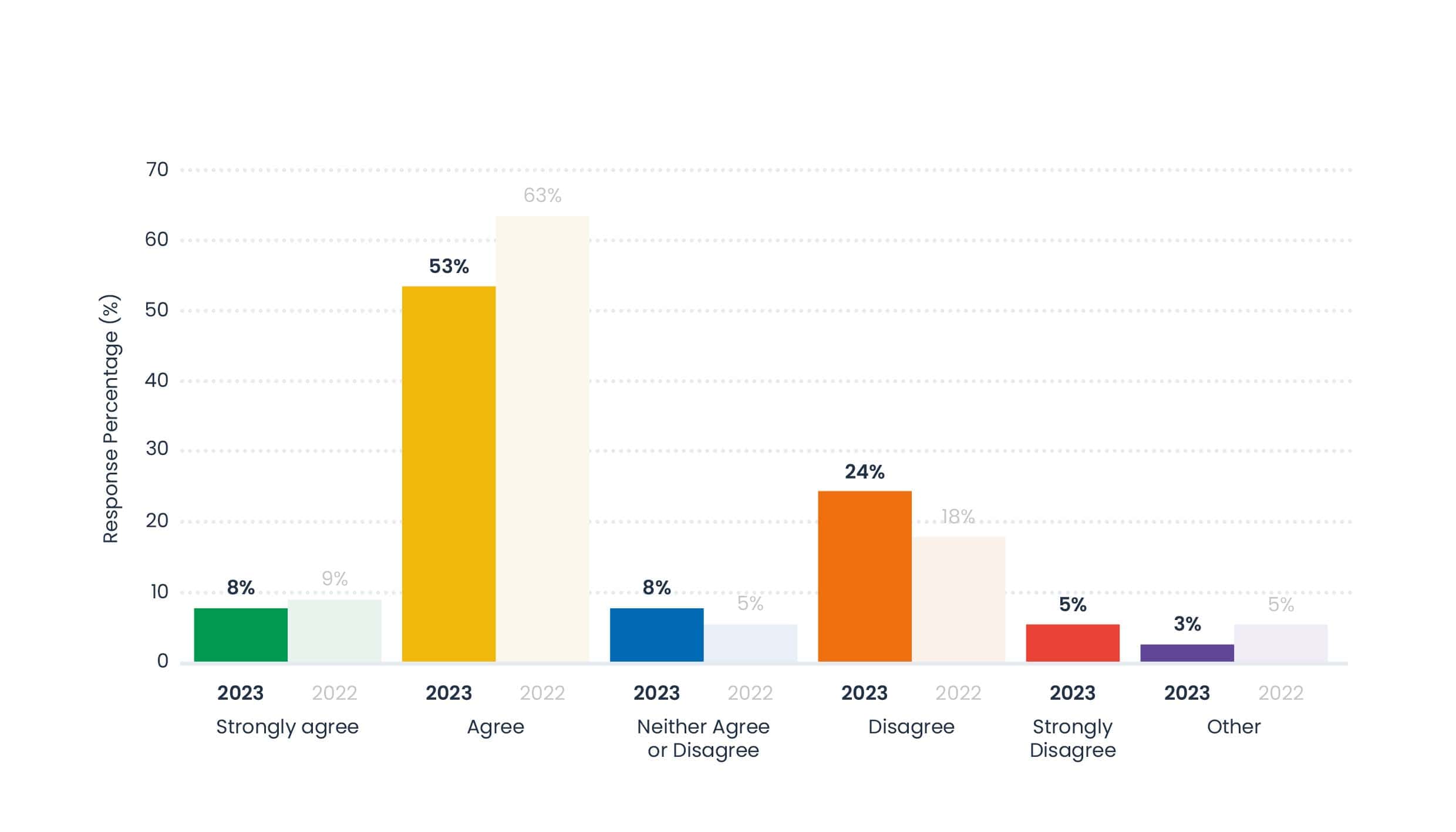
There is still a strong majority here who believe they understand the impact of data on outcomes for tenants. Data underpins every interaction with tenants, from understanding who they are and what they need, to their history with you and how you might be able to support them.
Beyond that, the duty of care to those tenants means an understanding of stock condition is absolutely critical, something Awaab’s Law will bake into regulation. Without a strong grip of data in this area, it can become, without exaggeration, a matter of life and death.
My organisation understands how data fuels key business processes
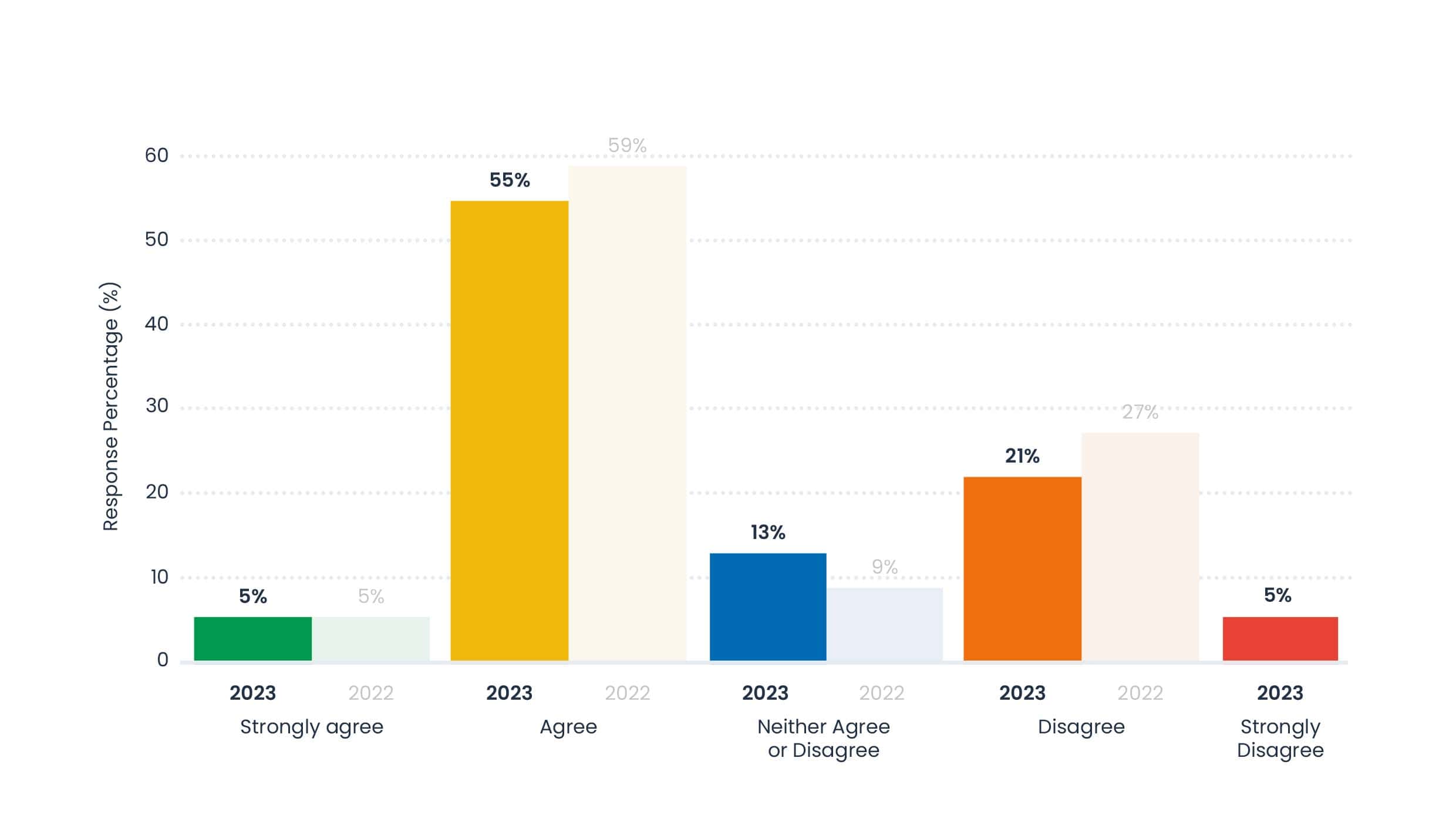
Here we see broadly similar results to the previous question. Understanding which data is fuelling your processes has numerous benefits. Firstly, the scope of your data assets can almost always be reduced. If we focus only on the things that drive our business, we can ask why we hold other information that doesn’t.
Secondly, by imagining data in this way, we can contextualise the results in such a way that the whole organisation can understand and buy into data governance. This will facilitate the embedding of new processes and roles, and ultimately lead to leaps forward in data quality and general data management.
Finally, it gives us the potential to quantify and prioritise problems beyond volume (the worst measure of data quality, but the easiest to produce). When we include compliance and cost as measures in our data-quality analysis, the priorities will make themselves clear.
That’s a wrap for the IntoZetta Data in Housing Survey 2023; a huge thank you to all those who participated and allowed us to double the response rate.
Your insight, experiences and responses will influence data strategies across the sector. In addition, it will give decision-makers an enlightened view of how data is perceived and where they should be focusing their time and attention.
As ever, if you would like to take part in the 2024 survey or share your experience of working with data in the housing sector, reach out to us at participate@housingdatasurvey.com.
David Bamford is the delivery director at IntoZetta.

